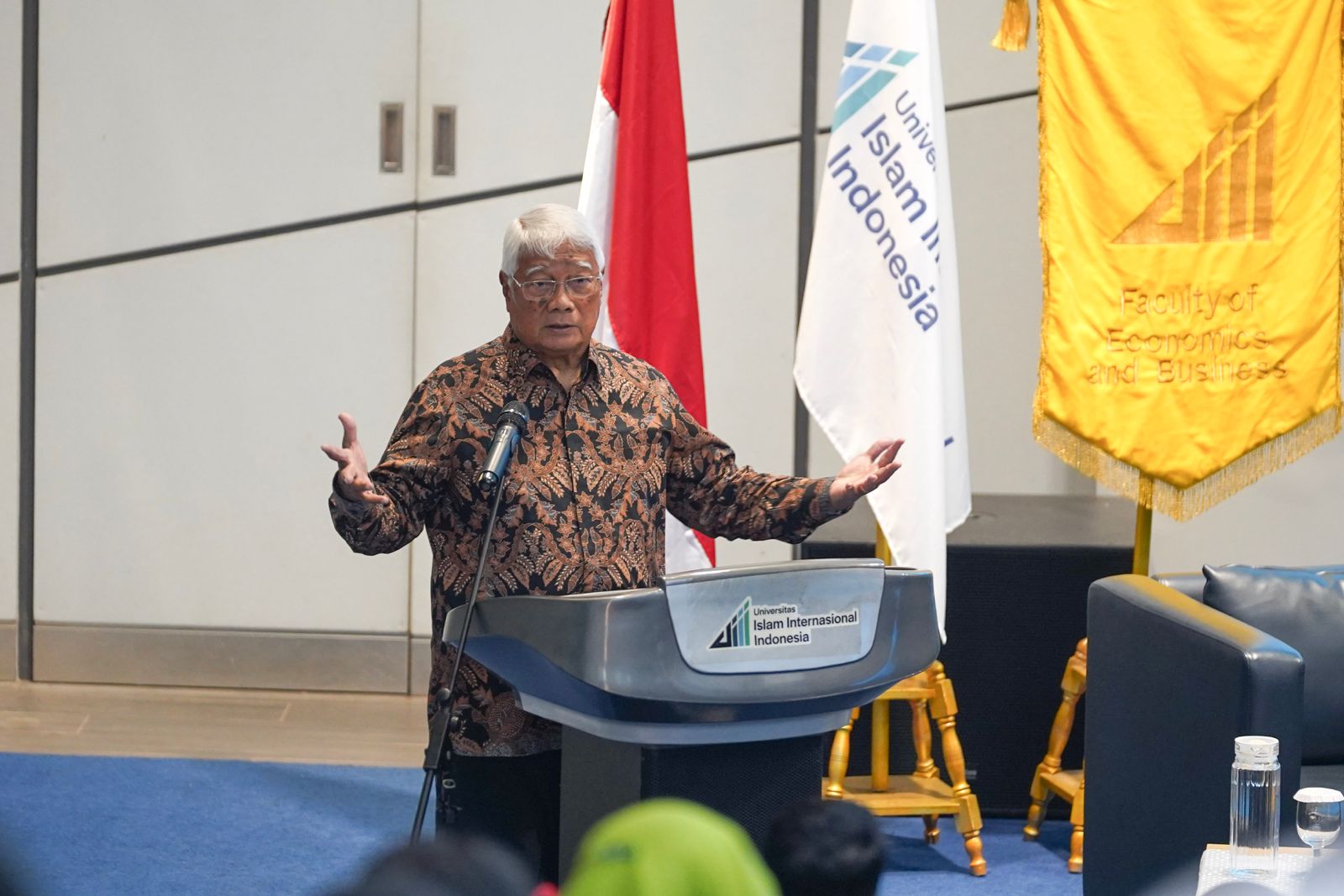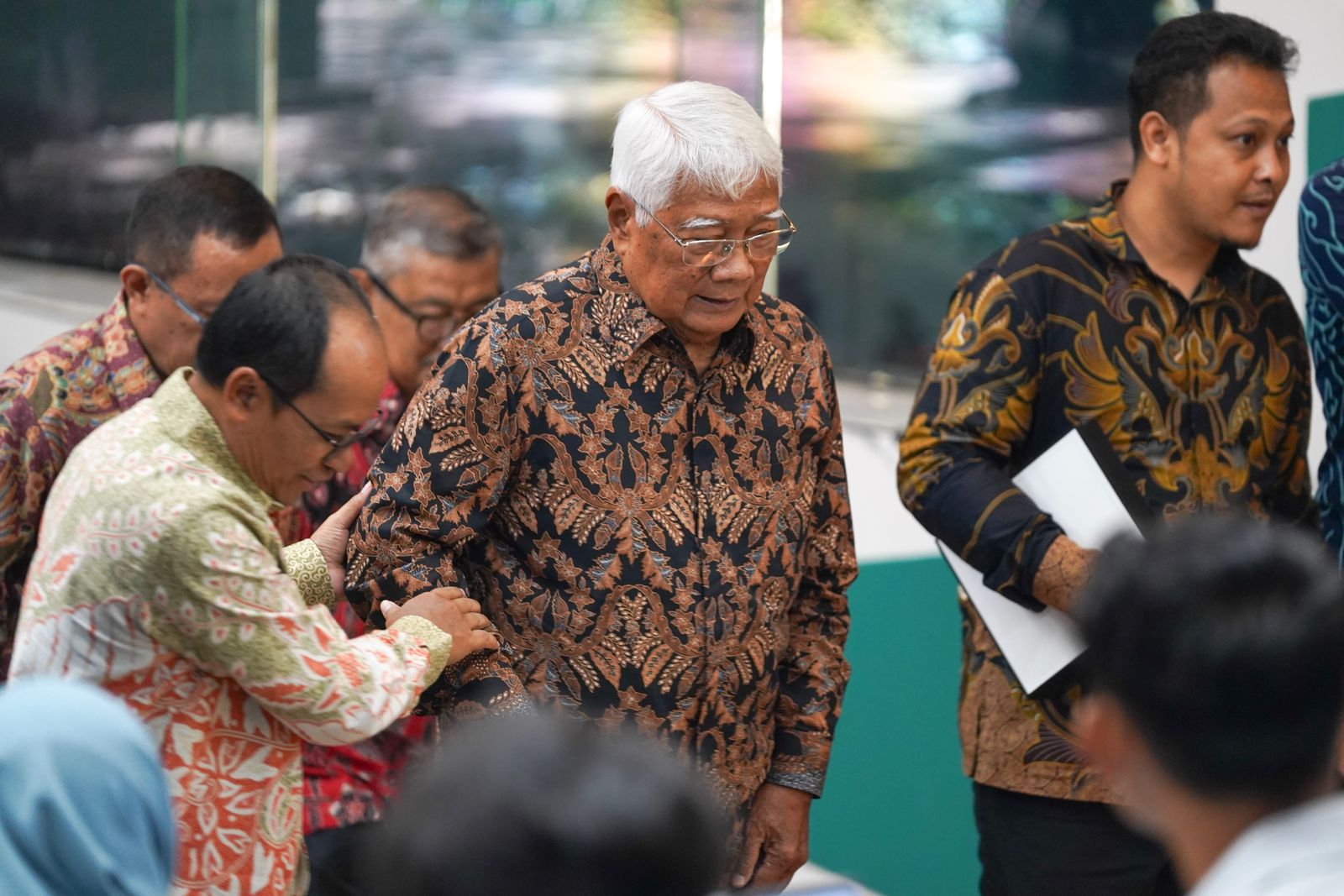May 28, 2025
Contributor: Supriyono | Editor: Dadi Darmadi | Photo: Achmad Jatnika

Amidst global economic turbulence, Prof. J. Soedradjad Djiwandono, a renowned economist and Emeritus Professor from Universitas Indonesia and former Governor of Bank Indonesia, the nation’s central bank (1993-1998), delivered a compelling keynote speech at the 4th International Conference on Muslim World Economy and Business (ICMWEB) 2025, hosted by UIII’s Faculty of Economics and Business. His address, titled “Smart Policy Responses to President Trump’s Haphazard Tariff Policy,” provided both a deep analysis and a call to action in the face of rising trade tensions and economic uncertainties.
In his remarks, Prof. Djiwandono explained how President Donald Trump’s second-term tariff policies—marked by abrupt and often punitive tariff increases against major trade partners including China, the EU, Canada, Mexico, and even Indonesia—have reignited a global trade war. He recounted how the tariffs, implemented under the guise of “America First” and “Make America Great Again” rhetorics, ignored historical lessons from past protectionist moves such as the infamous Smoot-Hawley Tariff Act, which contributed to the Great Depression of the 1930s.
Rather than mere academic discourse, Prof. Djiwandono’s speech carried a palpable urgency. He criticized the “haphazard” nature of the tariffs, describing them as “self-inflicting wounds” on the U.S. economy, echoing sentiments expressed by leading economists including Janet Yellen, Jeffrey Sachs, and Larry Summers. The retaliatory measures from affected countries, including Indonesia, Canada, Mexico, and China, have compounded the problem, straining supply chains and diminishing global growth prospects.
Yet, amid this uncertainty, Prof. Djiwandono lauded Indonesia’s proactive stance. He highlighted how the government, under President Prabowo, swiftly engaged in diplomatic negotiations with U.S. trade authorities, sending a high-level delegation to Washington D.C. Their early engagement and constructive dialogue, bolstered by personal connections such as Thomas Djiwandono and U.S. Commerce Secretary Howard Lutnick’s shared alma mater, Haverford College, exemplified Indonesia’s strategic agility.

Moreover, he emphasized Indonesia’s growing resilience through its integration with BRICS, a move that has enabled the country to diversify trade settlements using national currencies and reduce dependence on the U.S. dollar. Prof. Djiwandono noted that this approach mirrors ASEAN’s earlier regional strategies and strengthens Indonesia’s position in a volatile global economic order.
Prof. Djiwandono concluded his keynote with a stirring message of resilience and adaptability: “Facing a world full of risks and uncertainties, we must behave eclectically—always ready to adjust as circumstances demand, never surrendering without a fight.”
His keynote served as both a critical reflection and a roadmap for navigating today’s complex global landscape. His analysis underscored the need for evidence-based policy, strategic diplomacy, and a commitment to multilateral cooperation in a world increasingly shaped by protectionist impulses and geopolitical tensions.
Universitas Islam Internasional Indonesia